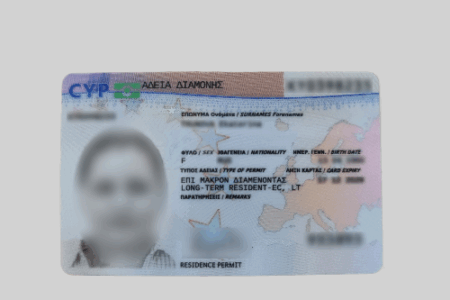Those planning to move to Cyprus need to familiarize themselves with the country’s tax system. We have prepared an article outlining the contributions that both individuals and legal entities must pay in Cyprus, as well as other expenses prescribed by the island’s tax policies for its residents.
Contents
- 1 What makes Cyprus’s tax system attractive?
- 2 How to Become a Tax Resident of Cyprus
- 3 Taxes for Individuals
- 3.1 Defense Tax (SDC)
- 3.2 Capital Gains Tax
- 3.3 Taxation of Foreign Pension Payments
- 3.4 Rental Income Tax
- 3.5 Corporate Tax Payments in Cyprus
- 3.6 Corporate Tax 12.5%
- 3.7 IP-Box Regime with a 2.5% Rate
- 3.8 VAT (Value Added Tax)
- 3.9 Property Tax for Legal Entities
- 3.10 Other Taxes and Fees in Cyprus
- 3.11 Non-Taxable Income
- 4 Becoming a Tax Resident of Cyprus: Yes or No?
What makes Cyprus’s tax system attractive?
Cyprus’s tax program has its own characteristics that allow the state to be self-sufficient while enabling taxpayers to enjoy a good standard of living without being burdened by excessive taxes. Cyprus attracts a significant amount of foreign investment, primarily during the busy tourist season and through the sale of real estate to citizens of other countries, including those planning to obtain a residence permit or permanent residency on the island.
Foreigners purchase property in Cyprus because of the moderate taxes and the comfortable, safe lifestyle. The island also offers excellent conditions for business development, and local companies are willing to employ foreign workers, often handling all the paperwork and work visa arrangements themselves.
How to Become a Tax Resident of Cyprus
In 2017, Cyprus introduced legislation regulating the procedure for individuals to obtain tax residency status. To become a tax resident, an individual must:
- Spend at least 60 days per year in Cyprus;
- Not spend more than 183 days per year in any other country;
- Not be a tax resident of another country;
- Be a founder or an employee of a Cypriot company;
- Have a permanent residence in Cyprus, either owned or leased on a long-term basis.
Previously, this period was three times longer (183 days). The adoption of this legislation simplified the process of obtaining tax residency. Today, the 183-day format is still in place, and by following it, a foreigner is exempt from the other conditions applicable to the 60-day period. Thus, a prospective resident can choose between two options: the “183-day format” without additional requirements or the “60-day format” with some additional requirements.
Taxes for Individuals
What taxes are imposed on tax residents and non-residents of Cyprus?
A Cyprus tax resident is a foreigner who lives on the island for 60 or more days per year. Such an individual must pay taxes on income earned both on the island (from business or employment) and abroad. Non-residents, on the other hand, are only taxed on income earned within Cyprus or from Cypriot sources. In other words, income earned from a business or job in Cyprus is taxed, but foreign income is not.
The income tax rate depends on the resident’s income level and is structured as follows:
- €0-19,500/year — 0%
- €19,500-28,000/year — 20%
- €28,000-36,300/year — 25%
- €36,300-60,000/year — 30%
- Over €60,000/year — 35%
For example, if the annual income is €70,000, the first €19,500 is tax-free, the next €8,500 is taxed at 20%, the next €8,300 is taxed at 25%, the following €23,700 is taxed at 30%, and the remaining €10,000 is taxed at 35%.
Certain types of income are exempt from income tax, such as:
- 50% of the income earned by a foreigner on the island when they were still a tax resident of another country. This exemption applies for five years, provided the individual earns more than €100,000/year;
- 20% of the income of foreign Cyprus residents. This benefit is granted for a three-year period starting from the first year following the year in which the individual began working on the island;
- Income from interest and dividends;
- Income from the sale of securities;
- Salary earned by non-residents of Cyprus while working abroad, as well as the income of Cyprus residents who work for companies on the island but are absent from the country for more than 90 days/year;
- Certain financial funds, such as one-time retirement benefits, all pension payments, funeral allowances, and insurance payouts resulting from injury or death.
Additionally, Cyprus residents’ incomes are subject to the following contributions:
- Contributions to reserve fund organizations;
- Deductions related to union membership;
- Charitable contributions to organizations designated by the state.
Defense Tax (SDC)
All tax residents of Cyprus must pay a defense tax, which covers the state’s expenses for ensuring the country’s and its residents’ security if these tax residents have domicile status in Cyprus. Foreigners without domicile status are exempt. Domicile status is obtained by being born in Cyprus or living there for 17 years. A non-domicile certificate is issued by the tax department.
In Cyprus, the Special Contribution for Defence (SDC) tax applies to various types of income. Specifically, it is set at 30% for “passive” interest, excluding those earned by collective investment funds and interest related to a company’s core activities. There is also a 17% rate for dividends from foreign companies under certain conditions. Additionally, rental income is taxed at an effective rate of 2.25%, in addition to the income tax.
Capital Gains Tax
Capital gains tax is a percentage of the profit made from buying and selling Cypriot real estate or transactions involving securities not listed on recognized exchanges. The capital gains tax rate is 20%. However, the first €17,086 of the seller’s income is exempt from this tax, with the remaining amount being taxed.
Taxation of Foreign Pension Payments
For pensioners who are tax residents of Cyprus, there are two options for taxation:
- No tax is levied on the first €3,420, and a 5% tax is applied to the remaining pension income;
- The entire pension amount is added to other types of income and taxed according to the standard rate schedule. This option is chosen by pensioners whose total income is low (not exceeding €19,500/year).
Rental Income Tax
In Cyprus, income from renting out property is subject to rental income tax, which is levied on the income property owners receive from renting out their properties. The tax rate is 3.5% of the total rental income. Every property owner receiving rental income is required to pay this percentage as tax.
Corporate Tax Payments in Cyprus
Employers in Cypriot companies pay taxes on behalf of their employees by making deductions from their salaries. Self-employed individuals must file an income declaration if their earnings exceed €19,500/year. This declaration must be submitted by the end of the tax reporting period on July 1st. After the declaration is accepted, tax payments must be made in two equal installments during the tax year.
Corporate Tax 12.5%
Since 2003, Cyprus has implemented a rule that eliminates the distinction between Cypriot and foreign companies. For any entrepreneur, whether Cypriot or foreign, a 12.5% tax rate applies. The difference is that if a company is a Cypriot resident, it pays tax on profits earned both abroad and in Cyprus. Non-residents only pay tax on profits from activities in Cyprus.
Certain types of income are exempt from corporate tax, including income from dividends, share transactions, profits from subsidiaries abroad, and 50% of the profits of a resident company. If a company’s main office is located abroad and it cannot be granted Cypriot resident status, only income from local operations is subject to tax. Non-resident companies do not benefit from this exemption.
IP-Box Regime with a 2.5% Rate
Cyprus offers a unique tax regime called the IP-Box, designed to encourage innovation and research in intellectual property. Launched in 2012, this system offers significant tax advantages for income derived from certain types of intellectual property, including patents, trademarks, design, software, and copyrights, as well as technology knowledge and trade secrets.
The primary goal of this program is to attract companies engaged in research and development, particularly in the IT sector, to Cyprus, thereby stimulating investment in local R&D. Companies registered in Cyprus that meet certain criteria can take advantage of this regime to reduce their income tax to 2.5% for income derived from qualifying intellectual property assets. This is achieved by exempting up to 80% of income from these assets from tax, with the remaining 20% being taxed at the standard rate of 12.5%, resulting in an effective tax rate of 2.5%.
VAT (Value Added Tax)
Companies in Cyprus whose income exceeds €15,600 from the date of registration are subject to VAT, regardless of the services they provide or the goods they produce.
Upon reaching this income threshold, the company must obtain a VAT number and file quarterly tax returns. The VAT rate can be as high as 19% of income, with certain exceptions for organizations involved in postal services, insurance, education, and property rental. However, transactions involving the purchase and sale of new real estate in Cyprus are subject to this tax (see VAT on property purchases).
Useful information for tourists planning to purchase goods in Cyprus: VAT refunds are available on all purchases. To claim this refund, visit the specialized TAX FREE terminals (located at Larnaca and Paphos airports) and present your receipt for the purchased goods. After a brief check, you will receive a refund of the VAT amount.
Property Tax for Legal Entities
Property tax in Cyprus is a form of taxation applied to property owners. This tax is calculated based on the assessed value of the property, with rates ranging from 0.6% to 1.5% depending on the property’s value. Property owners in Cyprus are required to pay this tax, which is calculated based on the total value of all properties they own.
Other Taxes and Fees in Cyprus
Residents of Cyprus are also subject to several other taxes:
- Upon purchasing secondary real estate, there is a Transfer Fee of 1.5-4% of the purchase price;
- A Stamp Duty must be paid when purchasing real estate;
- A property tax for third-country nationals and residents, which ranges from 0% to 0.8% of the market value of the property and must be paid annually;
- A 17% tax on dividends, applicable only to individuals with domicile status in Cyprus. Although dividends are tax-exempt for non-domiciled individuals, a contribution to the GESY (General Healthcare System) of 2.65% is still required;
- A 10% tax on royalties for non-residents;
- Road tax (ROAD TAX) which ranges from €10 to €521 per year, depending on the vehicle’s engine parameters.
Non-Taxable Income
In certain cases, specific types of income may be exempt from taxation, including:
- Dividend income;
- Interest income not related to primary employment;
- Exemptions for individuals who were not tax residents of Cyprus before starting work in the country, which reduce the taxable base by 50% or 20%, but not more than €8,550. These exemptions have different conditions and cannot be used simultaneously;
- Income from the sale of securities;
- Income from services provided outside of Cyprus if the services are rendered for more than 90 days during the tax year;
- One-time payments upon retirement, burial allowances, insurance payouts for injuries or in case of death;
- Income from reserve funds;
- Income from film production, series, and similar projects.
Additionally, certain amounts may reduce the taxable base, such as:
- Contributions to trade unions;
- Losses from the current or previous years;
- 20% of rental income;
- Donations to official charitable organizations;
- Expenses for the renovation of old residential buildings, within established limits;
- Contributions to social insurance systems, including health, pension, and life insurance, with certain tax deductions;
- Investments in innovative small and medium-sized enterprises since 2017, provided that the investment amount does not exceed 50% of the taxable income for the year;
- 20% of investments in audiovisual infrastructure and equipment;
- Expenses for scientific research.
Becoming a Tax Resident of Cyprus: Yes or No?
The particularity and advantage of Cypriot tax residency lie in its flexibility, allowing for the successful use of legitimate business schemes that reduce the taxable base. Combined with the transparency of regulation and government oversight, this ensures effective business operations. Cyprus’s tax system is ideally suited for developing one’s business, which is why many foreign investors choose to invest in Cyprus.
Deciding whether or not to become a tax resident of Cyprus is an individual question for each person and company. There are certainly many benefits to obtaining Cyprus residency status: additional rights and more tax exemptions. However, tax residents also bear more tax obligations than non-residents. In any case, Cyprus’s tax system creates favorable conditions for the development of both resident and non-resident companies.
















